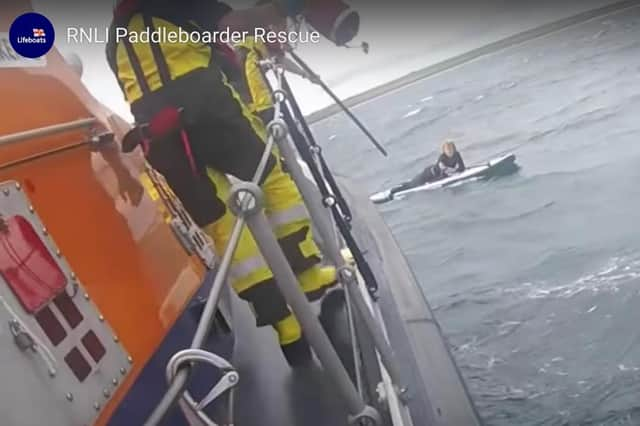RNLI launches summer water safety campaign.


The national lifeguard service proved to be a popular one last year with more than 234,000 visitors and 60,000 preventative actions recorded across their eight beaches.
Paddleboarding has rapidly become one of the most popular activities on waters in and around Scotland, but figures released by the RNLI have revealed an 86% increase in rescues by the lifesaving charity.
Advertisement
Hide AdAdvertisement
Hide AdLaura Erskine, water safety education manager for Scotland, is keen to help people enjoy their paddleboards safely this summer by following simple advice.
Laura said: ‘The RNLI noted a significant increase last year to incidents involving paddleboards around Scotland, with a high number of people being blown or swept out to sea. If you’re planning to paddleboard this summer, please follow a few simple steps before heading out to keep you safe - wear a buoyancy aid, carry a phone in a waterproof pouch, wear the correct leash and avoid offshore winds.
“If you end up in the water unexpectedly or are in trouble in the water without your board then float on your back.”
Over half of the people who lose their lives at the coast never intend to enter the water in the first place, and as Scottish schools get set to break for summer, experts at the charity are urging everyone planning to enjoy the coast to remember that if you get into trouble in the water, Float to Live.
Advertisement
Hide AdAdvertisement
Hide AdLaura continued: “Tilting your head back to submerge the ears is key; we all float best in slightly different positions so your legs may naturally sink and you may need to use your hands to scull. Relax and try to breathe normally, then once your breathing is under control, call for help or swim to safety if you feel able. It’s important to remember that even though the weather is warmer, the water can still be significantly cold.
“If you spot someone else in trouble call 999 – if you are at sea or on the beach, ask for the Coastguard, or if inland ask for the Scottish Fire and Rescue Service.”